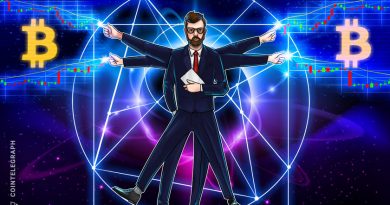Father of JOBS Act: US Digital Dollar Is Inevitable, No One Wants Chinese Currency
Father of the JOBS Act does not believe there will be any demand for the Chinese digital currency.
David Weild IV, who is known as the father of the JOBS Act, believes that the issuance of the digital dollar is imminent and that the U.S. government should hurry up with it.
In addition to garnishing bipartisan support for one of key legislations of the Obama era, Wield served as vice-chairman of NASDAQ, and currently manages his own decentralized investment bank that helps crypto and blockchain companies raise capital.
China is unpredictable
Weild does not believe that the digital yuan will generate a lot of demand outside of China because of the restrictive nature of its political system. Meanwhile, he said that the U.S. should not vacillate on the issue and preserve the global preeminence of its currency by offering it in the digital form:
“I think that the United States should do it. And I think the United States should do it sooner rather than later. But I also think that most of the world is not that interested in a Chinese digital currency, simply because it’s not a free country. It’s not predictable. And there are plenty of Chinese people that would like to get out of China because of the arbitrary nature of the government at times.”
People will pay in crypto
At the same time, he believes that there will be demand for the digital currency, as the U.S. dollar has always been a flight currency — At times of economic turmoil, international investors historically have sought shelter in the US dollar. Digital currency could also reduce transaction costs and provide additional convenience:
“You’re going to see just like people move to credit cards, people will start paying for things in crypto. Why not have an ability to go to your local bank and to be able to pay for something with a digital currency and you can cut down transaction costs? I think it’s inevitable that there will be a U.S. dollar backed stablecoin issued by the federal government.”
Nonetheless it is unlikely to happen anytime soon, according to Weild, who notes that Capitol Hill is currently preoccupied with the November presidential elections.




